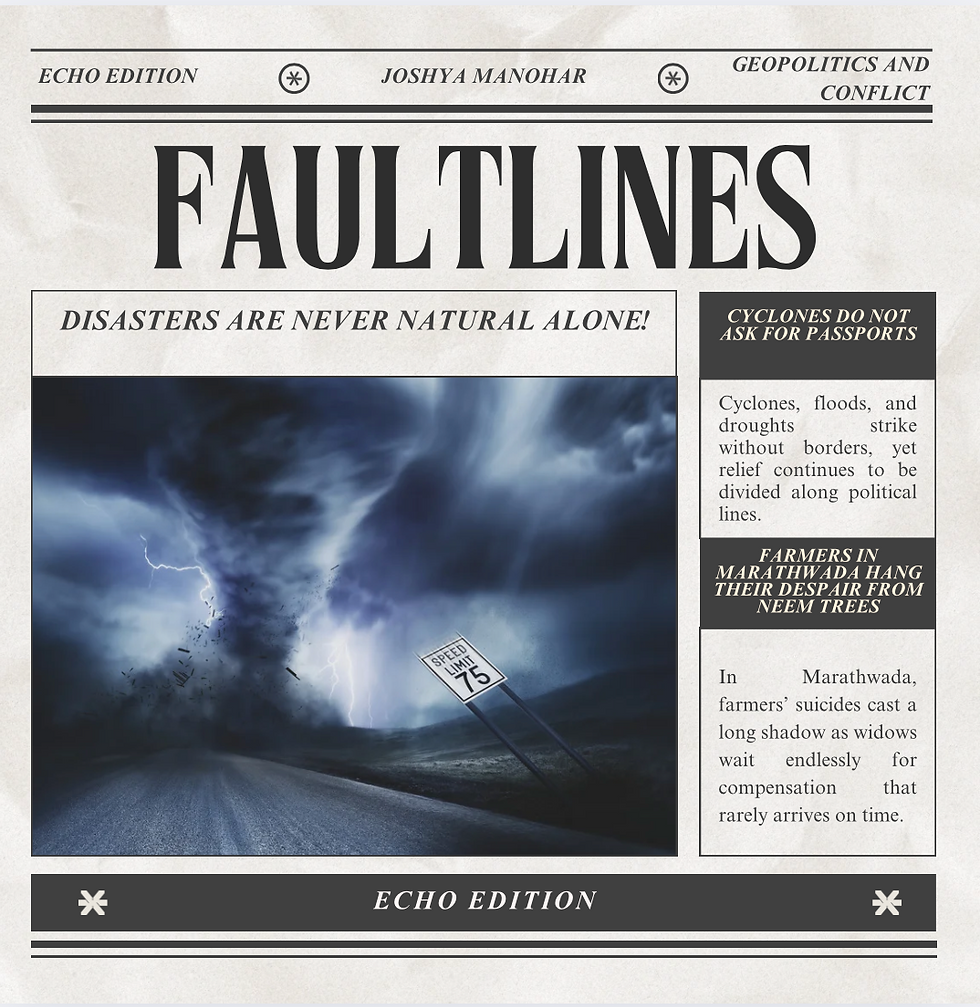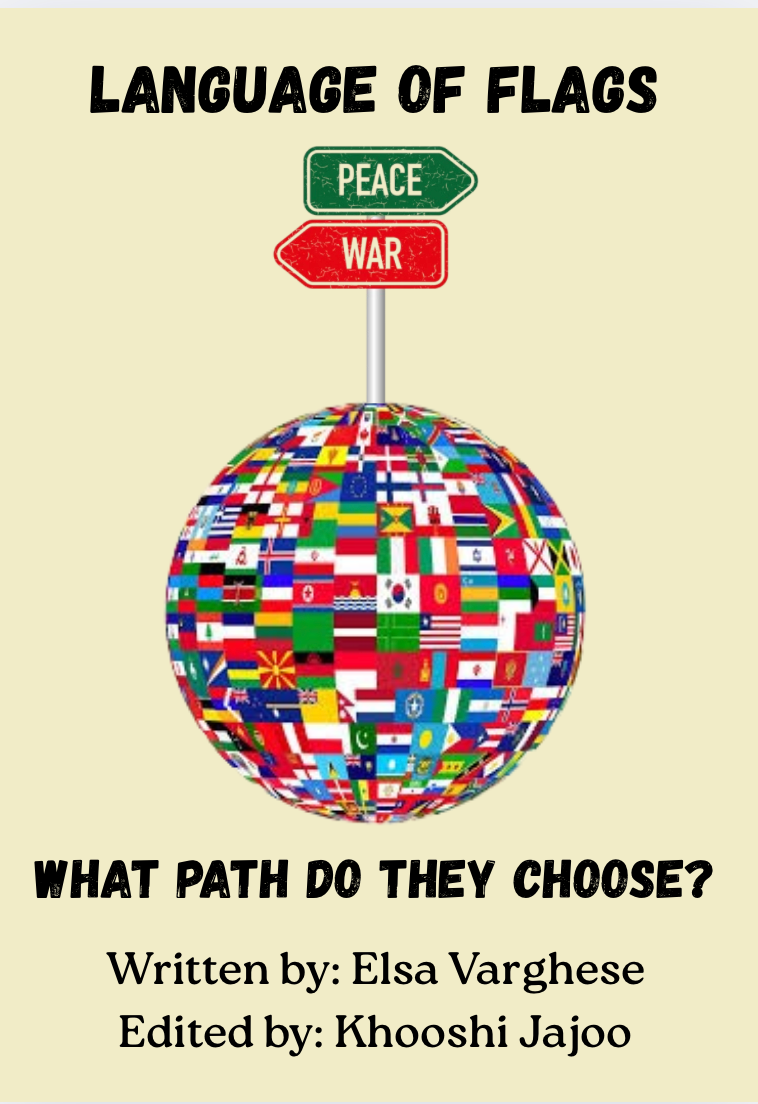Faultlines
- Echo Magazine

- Sep 11, 2025
- 2 min read

Written By: Joshya Mudaliar
GD By: Sakhi Maheshwari
The river has no memory of treaties.
When the Brahmaputra swells,
it does not pause at the fence,
does not consult diplomats or cartographers.
It takes with it homes, cattle, schoolbooks,
and leaves behind the silence of soaked earth.
Cyclones do not ask for passports.
Floods do not stop at customs.
Drought cracks the land in states and union territories alike
yet policies march in uniform,
dividing relief into shares of loyalty,
while unity is rationed like grain.
Every calamity is a mirror
reflecting not just the fury of nature,
but the politics of response,
the silence of promises,
and the conflicts seeded in neglect.
In Kashmir
Glaciers retreat like tired soldiers,
but the army remains.
Every landslide is a double siege
the mountain pressing down from above,
the checkpoint holding firm below.
Here, even nature is political,
its fury weighed against the calculus of control.
And then the drought
not sudden like flood or storm,
but slow, deliberate,
a tightening noose of cracked soil.
Farmers in Marathwada hang their despair from neem trees,
their widows queuing for compensation
that drips slower than monsoon.
The land burns quietly,
while speeches thunder on television.
Where villagers speak of rain
as both prayer and punishment,
where rescue boats come late,
sometimes never,
because priorities sit in conference halls
where the maps glow brighter than faces of the displaced
.
Perhaps, in these unspoken solidarities,
lies the truest resistance to disaster
not the maps, not the speeches,
but the quiet rebellion of compassion
against the storms of both earth and empire.
Disasters are never natural alone.
They expose the faultlines of governance,
the cynicism of relief,
the violence of neglect.
But they also reveal
the stubborn mercy of people
who, amid the wreckage,
choose humanity over geopolitics,
compassion over conflict.





Comments